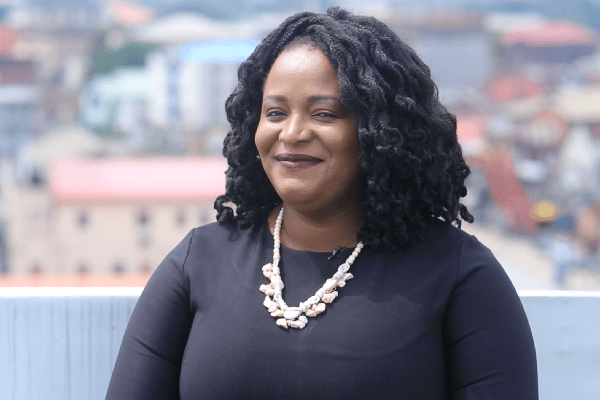By Miracle Nwankwo
The loss of blood or shortage of blood in a patient is a very delicate issue that requires a lot of support system, including a blood bank for that patient to survive. Most times the inability to find blood that matches or even find it on time is always a problem in many places around the world.
In Nigeria, Temie Giwa-Tubosun figured a way to solve this problem, and this has saved many lives in Nigeria and created jobs for some through its smart logistics.
Temie founded LifeBank in 2016, a support system that serves as a digital bridge between public hospitals, private hospitals, and blood banks in Lagos (Africa’s most populous city).
In 2018, LifeBank was dubbed “Uber for blood” by the media since it became a go-to resource for many hospitals and health centres that uses the technology to find blood in the exact type required and from the closest blood bank in their area.
Even with the constant traffic jam in Lagos city, LifeBank ensures that blood is delivered in less than 55 minutes to any hospital on a request for blood at $8. The blood is stored in a cold chain system and preserved at 10 degrees Celcius for safety. Upon request, the blood is delivered in an enclosed box that can only be opened via Bluetooth by the intended recipient.
About Temie Giwa-Tubosun
Temie Giwa-Tubosun is a Nigerian woman born in Ila Orangun in Osun State. Her father was a university professor and her mother a school teacher. She is the fourth of six children.
Temie spent her early years in Ila, Ilesha, and in Ibadan, southwestern parts of Nigeria. At the age of ten, her parents won the US Diversity Immigrant Visa and left for the United States with three of her older siblings. Five years later, Temie and her other siblings joined their family, and she was fifteen at the time.
When Temie relocated to the United States, she began attending Osseo Senior High School, Minnesota and graduated in 2003. She furthered her studies in the Minnesota State University Moorhead and graduated in 2007. The following year, she went to graduate school at Middlebury Institute of International Studies at Monterey and graduated in July 2010.
Before finishing her programme at graduate school, Temie visited Nigeria in 2009 for a three months internship at the Department for International Development at Paths2 in Abuja (Nigeria’s Capital city). During that period, she met a poor mother, Aisha whose protracted labour exposed Temie to the problem of maternal mortality among Nigerians.
Temie went for a graduate fellowship at the World Health Organization in Geneva, Switzerland, in 2010, which lasted for about seven months. After graduating from Middlebury Institute of International Studies at Monterey, she worked for a short time at Fairview Health Services in Minnesota that same year. Then in August 2011, she began a fellowship with the Global Health Corps, and spent the next year at Mbarara, Uganda, working with the Millennium Villages Project a project of the United Nations Development Programme and Millennium Promise.
Temie returned fully to Nigeria in August 2012, and she got married. Back in Nigeria, she was engaged in a lot of work, from writing for a Nigerian youth-focused web magazine to working for the Lagos State Office of Facility Management. And becoming a Program Manager for Nollywood Workshops, an NGO set up by the Hollywood, Health & Society, and described as “a hub for filmmakers” in Lagos, that supports and delivers movie production and distribution, training, and research.
However, the issue of blood shortage in the country spurred her interest in heath-tech. She had formed a non-governmental organization called One Percent Project when she first relocated back to Nigeria on May 21, 2012. The Foundation focused on ending blood shortage in the country by educating Nigerians on the importance of blood donation, helping them overcome fears, prejudice, myths and apathy about blood donation, and also pursuing increased distribution network of blood in blood banks in Nigeria.
Becoming an entrepreneur in the technology industry was never Temie’s ambition, but as the problem of people dying from lack of access to blood in Nigeria was worsened every day, she quit her job in health management which she loved so much to tackle the problem. For many years she tried to solve this problem while remaining comfortable in her job, but she realized that the solutions were not receiving the level of impact needed. So she had to tell herself the truth that quitting her job to focus on solving the problem, is what would make a difference.
She became more inspired when a loved-one lost her dad, who died as a result of over bleeding. On hearing the story, Temie decided to take the leap. She resolved that the sustainable way to solve this problem would be to set up a venture rather than a non-profit. And with the age and time, she also knew that technology would be a perfect tool.
So in January 2016, she ventured into a career path different from the one she had been trailing. She founded LifeBank, a business organization set up to tackle the problem of blood shortage in Nigeria.
In four years, seven thousand pints of blood from blood banks have been moved to hospitals with the help of technology, big data, and smart logistics. LifeBank aims to move one hundred and six thousand pints in the next two years. Through it periodically campaign on sensitizing Nigerians on the importance of blood donation a concept that is foreign to many in the country, the startup has also recorded about 5,026 donors through its donation drives.
The company is not just a startup but a life-giving venture.





Comments are closed.